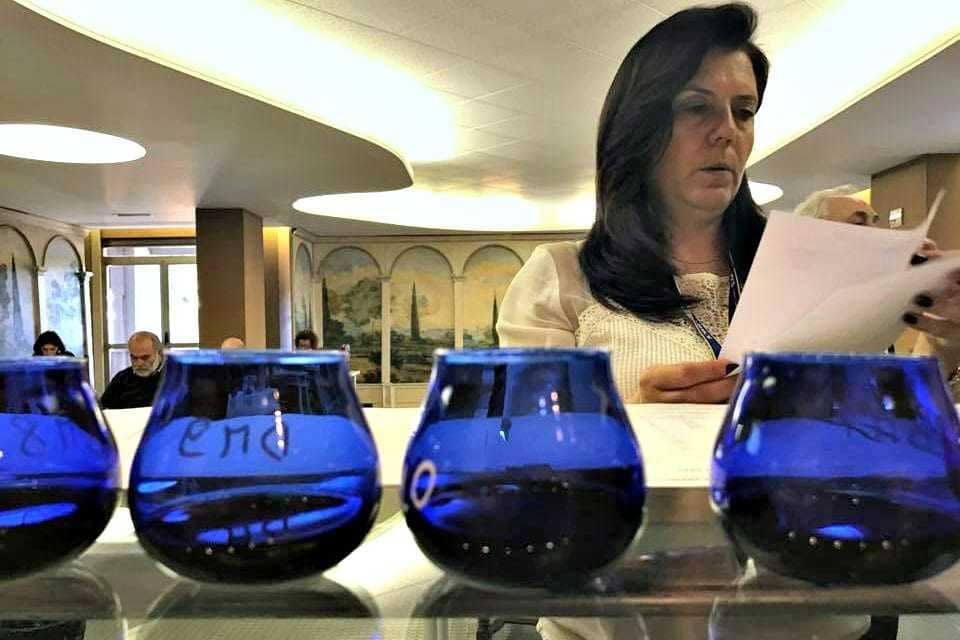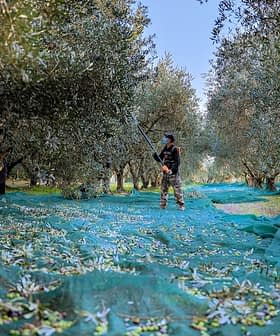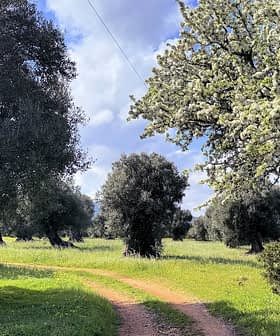25th 'Ercole Olivario' Recognizes Italian Excellence
The 25th Ercole Olivario awarded Italian extra virgin olive oils that managed to achieve a high level of quality despite a difficult season.
The 25th Ercole Olivario, a competition dedicated to Italian olive oil excellence, culminated with an award ceremony in Perugia, Umbria on April 1st.
174 extra virgin olive oils from 17 Italian regions participated in the latest edition of the contest, after having been first selected by regional panels and then evaluated at the Chamber of Commerce of Perugia by 16 tasters representing every region.
Despite the difficult season experienced by Italian farmers, 99 finalists, including 47 PDOs and PGIs, reached the final stages with high levels of quality, the organizers said.
Organized by the Italian Union of Chambers of Commerce, Industry, Handicraft and Agriculture (Unioncamere), in collaboration with the Chamber of Commerce of Perugia and with the support of the National Chamber System, the competition aims to promote the extra virgin quality of the Italian peninsula with a special focus on PDO, PGI and organic products; to support operators who contribute to improving quality; and to enhance the role of skilled tasters to promote EVOO value at home and abroad.
Since the first Ercole Olivario in 1993, 8,378 participants have joined the event and 1,550 finalists have been awarded.
This year, Lazio achieved great success with four awards, followed by Marche, Puglia and Umbria (two awards each), and Abruzzo, Calabria, Sardinia, Sicily and Tuscany (each with one award).
Twelve participants from the most-awarded region had been selected for the 24th edition of the regional competition Orii del Lazio (Gold of Lazio), promoted by Unioncamere Lazio.

A panel, consisting of at least one representative from each province of the region, carried out the assessments of samples in the chemistry laboratory of the Chamber of Commerce of Rome, which is the body authorized to perform chemical and physical analyses for the certifications of protected designation of origin of extra virgin olive oils; while the organization of the competition was realized by Agro Camera, a special company of the Chamber of Commerce of Rome aimed at developing the agri-food sector.
Marco Prosseda, was among the winners of Orii del Lazio, thanks to a medium fruity Sabina DOP. In the last year and a half, he joined his father Adolfo, who passionately manages the farm DueNoveSei in Moricone, in the province of Rome, which has been in their family for three generations. Carboncella, Salviana and Frantoio are located at 296 meters above sea level on the hills of the regional natural park of the Lucretili Mountains among oak and beech woods.
“I started to work on the farm and soon boosted the olive oil from a quality perspective,” Prosseda told Olive Oil Times. “We paid strict attention to agricultural practices and harvest, we crushed olives in a few hours and relied on a new efficient mill, we stored our extra virgin olive oil under nitrogen, and revamped the packaging,” he said. “We achieved these results, facing the difficult season, because the whole production process worked well, and also thanks to my lucky star, my daughter Elisa, who was born the day before the victory.”
Lucia Iannotta was one of the winners of the Ercole Olivario, with her intense fruity Colline Pontine DOP Olio Iannotta, which has its roots in Sonnino, in the province of Latina. “Every time I receive an award I am so touched and almost incredulous,” she revealed. “This recognition is the corollary to our commitment and efforts.”
Her olive trees are all secular Itrana and belonged to her grandfather. “We made a painstaking and patient work. A quality extra virgin olive oil can’t come out of a single factor; it is the product of so many elements and above all, it is the fruit of passion, attention, and care,” she pointed out.
Iannotta is supported by her mother, sister, and other collaborators. Her son, Antonio Maria, is the youngest teammate whose birth coincided with the beginning of her work in the olive grove, a decade ago.
Her olive groves are peculiarly lush and noteworthy. “I call them extended-orchards since they retain original features of the ancient olive groves, in which fruit trees such as figs, prickly pears, blackberries, and almonds were planted among the olive trees,” she explained and considered that her work was “a combination of tradition and innovation.”








